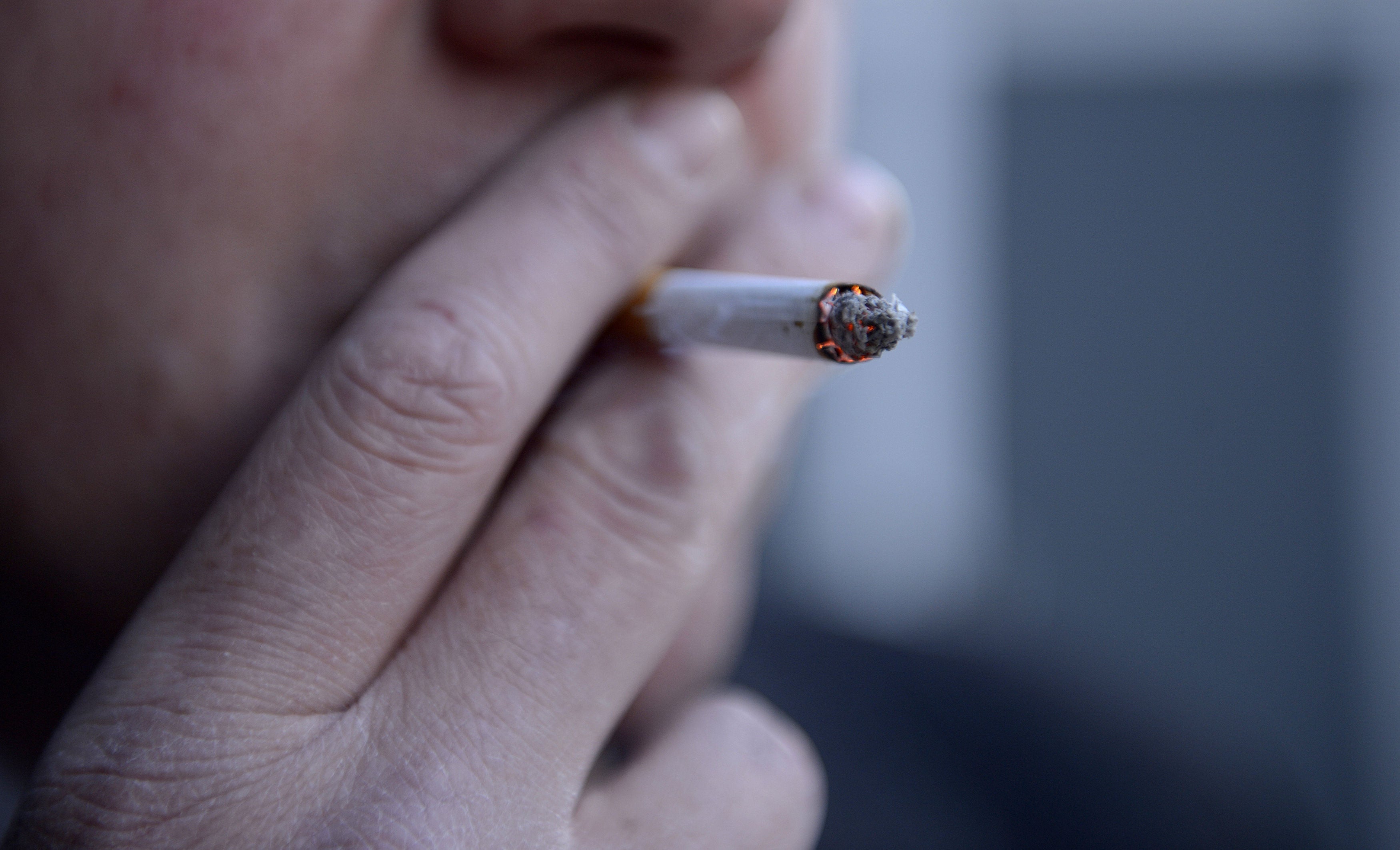Smokers urged to quit for New Year as new data shows teenagers four times more likely to smoke if parents do

Your support helps us to tell the story
From reproductive rights to climate change to Big Tech, The Independent is on the ground when the story is developing. Whether it's investigating the financials of Elon Musk's pro-Trump PAC or producing our latest documentary, 'The A Word', which shines a light on the American women fighting for reproductive rights, we know how important it is to parse out the facts from the messaging.
At such a critical moment in US history, we need reporters on the ground. Your donation allows us to keep sending journalists to speak to both sides of the story.
The Independent is trusted by Americans across the entire political spectrum. And unlike many other quality news outlets, we choose not to lock Americans out of our reporting and analysis with paywalls. We believe quality journalism should be available to everyone, paid for by those who can afford it.
Your support makes all the difference.A government campaign is calling on smokers to kick the habit as part of their New Year’s resolutions after new research found teens are four times more likely to smoke if their parents do.
According to the research promoted by the government’s Better Health Smoke Free campaign, 4.9 per cent of young teenagers whose caregivers smoke also smoke regularly, versus 1.2 per cent of those whose caregivers do not.
The delivery of the campaign is a collaborative effort was a collaborative effort from the new Office for Health Improvement and Disparities (OHID) in the Department of Health and Social Care.
Included within the campaign is a film created by the NHS, in which health experts talk through the links forged between a parent who smokes and the likelihood of their children picking up the habit.
In the film, family GP Dr Nighat Arif, child psychologist Dr Bettina Hohnen and smoking cessation experts Professor Nick Hopkinson and Dr Anthony Laverty of Imperial College London urge caregivers to give up smoking for their New Year’s resolutions.
Health minister Maggie Throup added that she hoped the research would give parents the push they need to quit.
She said: “We know that many people make a quit attempt in January, and while there are so many good reasons to stop smoking for yourself, we hope that this new campaign - by highlighting the inter-generational smoking link with parents influencing their children - will be the added motivation many need to ditch the cigarettes for good this year.
“With so much help and support available for parents, carers and anyone looking to quit - including the NHS Quit Smoking app, support on Facebook, daily emails and texts, and an online Personal Quit Plan - you won’t be alone in your new year’s resolution.”
Deputy chief medical officer for England and joint lead for the OHID, Dr Jeanelle de Gruchy, said: “Smoking is terrible for your health but it also has a negative impact on people around you. Most people know the dangers of secondary smoke but we should not overlook the impact that parents have as role models.”
“Our research findings are clear – adult smoking has a tangible impact on children. Children whose caregivers smoke are four times as likely to take up smoking themselves,” added Prof Nick Hopkinson of Imperial College London.
“The most effective way to help prevent this would be for adults to quit smoking – clearly not only does this have enormous benefits for them but it will also benefit their children both now and in later life.”
Join our commenting forum
Join thought-provoking conversations, follow other Independent readers and see their replies
Comments